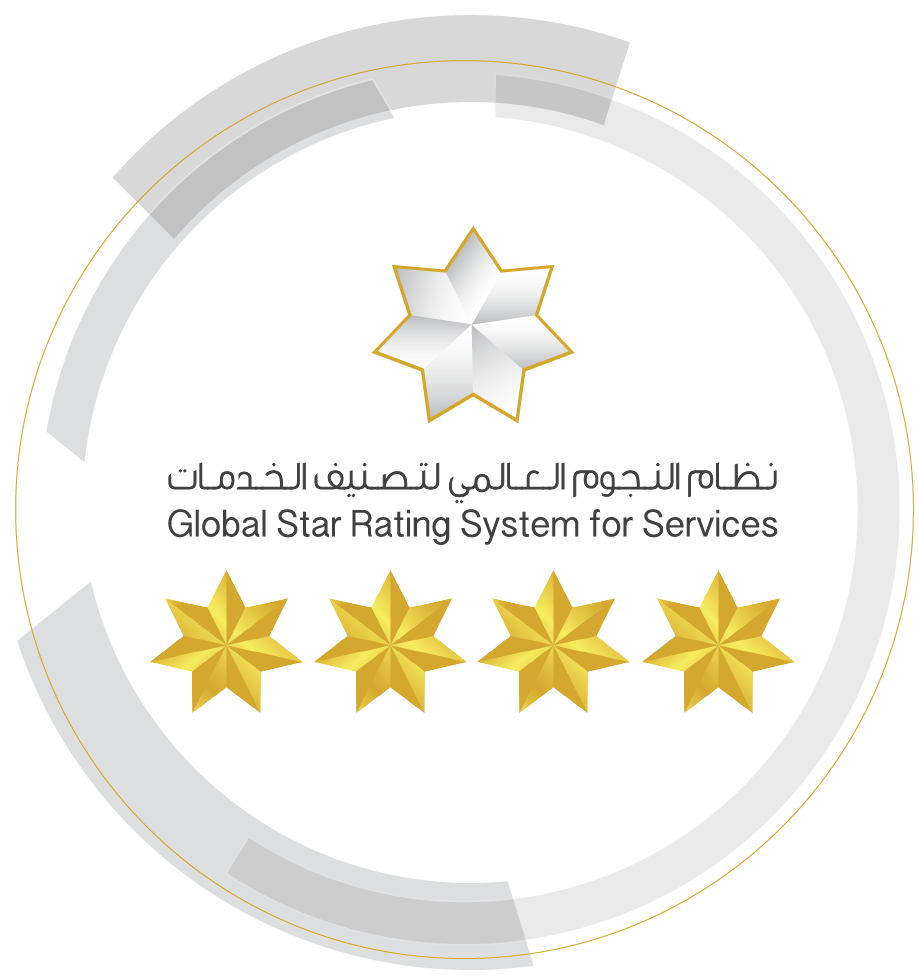Blog
Cloud computing ... a gate to the digital future
The big size of files
and data exchanged among companies created an urgent need to find larger
storage spaces, available around the clock and accessible from anywhere. Hence
the idea of cloud computing came to allow storing and processing of huge
databases using integrated operating systems at any time, via a device
connected to the Internet and a browser only. Thanks to this advanced technology,
the user no longer needs to store data and programs on a personal computer, and
companies no longer have to establish traditional data centres at a high cost.
Learn more about cloud
computing in this video: Cloud Computing Concepts
Cloud computing has the
ability to enhance security and privacy and offers clear operational and
productivity advantages. Saving and using data safely is much easier by storing
business data in a single external location, rather than storing it in local
servers or on the desktop. Hence, it is necessary to choose a trusted public
cloud service provider that uses robust security protocols to protect its
customers' data, such as multi-step authentication and 256-bit AES.
History of cloud
computing
The idea of cloud computing came in
1960 to
scientists such as John McCarthy and Joseph Carl. It was limited to processing
financial transactions and census data. In 1979 the term cloud computing
appeared and was used for the first time by information systems professor Chellappa Ramnath. The actual
development of cloud computing began in 1999 when Salesforce introduced its
online ordering website.
In 2002, Amazon launched its first
cloud under the name Amazon Web Services (AWS). Since that date, many
companies, such as Microsoft, expanded into cloud service technologies.
In 2022, the Telecommunications and Digital Government Regulatory Authority (TDRA) obtained accreditation from VMware, a leading provider of cloud services and virtual clouding, becoming the first government entity to provide sovereign cloud services from VMware in the region.
Major cloud services
Cloud services are of three main
types: Software as a Service (SaaS), Platform as a Service (PaaS), and
Infrastructure as a Service (IaaS). There is no one-size-fits-all approach to cloud
computing. It is primarily about finding the right solution that supports your
business requirements.
Software as a Service
(SaaS) is a software delivery model in which cloud service providers host
customer applications on their website. The customer accesses its applications
through the Internet. Instead of paying for their own cloud computing
infrastructure and maintenance, the customer subscribes to the services and pay
as they go.
Many companies find a SaaS solution ideal because enables them to grow up quickly with the most innovative technology available. Automatic updates reduce the load on internal resources. Customers can expand services to support fluctuating workloads, and add more services or features they develop. The modern cloud portfolio provides complete software for all business needs such as customer experience, ERP procurement, ERP project portfolio management, supply chain, and corporate planning.
Digital transformation gate
The presence of advanced, efficient, flexible and high-capacity cloud computing services helps government entities achieve complete digital transformation, which positively affects the quality, competitiveness and efficiency of the services they provide to their customers. The presence of advanced cloud services contributes to promoting a culture of innovation and building globally competitive digital services and products. Moreover, new job opportunities will be created in the field of information technology.
Federal Network (FedNet)
FedNet is one of the major enablers of cloud computing. FedNet is one of TDRA's initiatives, which aims to provide a technical infrastructure that enhances and improves customer experience within the digital government sector. FedNet provides many services to government entities, including the cloud infrastructure platform, backup service, and disaster recovery service, Virtual Data Center, Virtual Private Networking, Internet Networking, Government Networking, Secure Internet Service, Email Service, and Hosted Telecommunication Services.
The main objectives of FedNet are to connect and secure integration between all federal government entities, and to provide continuous communication in an effective and secure manner between these entities, using a joint infrastructure. Cloud computing provides information technology resources via the Internet to government entities, such as servers, storage units, databases, software, analysis tools, and artificial intelligence tools, with the aim of making access to these services easier, faster, and more economical.
Challenges
The
diversity of data sources was one of the major challenges posed by the
transition to cloud computing. Earlier, cloud computing consisted of
independent data centers connected to the Internet from multiple channels. That
means a lot of potential hacking sources. However, the government digital cloud
adopts specific data centers linked to the Internet from known channels, and
protected by a set of security controls. This effort coincides with preparation
of highly qualified human resources, and careful follow-up of the major
developments in the world of cybersecurity and piracy.
The International Telecommunication Union (ITU) has developed a security framework for cloud computing, which can be found through this link.
The UAE and cloud
services
The UAE is one of the leading
countries in adopting cloud services in order to develop its services. The UAE
government's plans to move to the cloud computing, which played a fundamental
role in the digital transformation and the integration of future technologies.
Cloud computing constitute the main pillar for moving forward to the IR4 technologies,
such as artificial intelligence, blockchain and the Internet of Things.
The
UAE is witnessing a strong demand for the services provided via cloud
computing, such as machine learning and databases, in various sectors,
including financial services, hospitality, oil and gas, retail trade, and
others.
In
this regard, TDRA plans to launch initiatives, strategies and projects that
support cloud computing, in order to fully comply with the transition to the
cloud environment. The transition to the cloud will help enhance information
security and resilience, reduce cost, and move from a capital expenditure model
to a direct operation model.
Cloud computing is important for
digital transformation, as it supports the efforts of entities in the field of
innovation. It speeds up the launch of innovative technical services, and
catching up with the delivery date, without the need to waste time for
logistical services, hardware, storage, or hosting. The network aims to reduce
government expenditures in general, through the principle of "economy of
scale", where the unit cost decreases, with an increase in the total units
consumed. This is implemented by merging joint government operations in a
single platform.
TDRA established frameworks and regulations
to manage data security in the cloud environment, and created an integrated
system to support the accreditation of companies and cloud service providers.
It also launched campaigns, seminars and awareness programs in the field of
cybersecurity related to the use of cloud services.
FedNet facilitates government entities' access to a set of ready-to-use cloud services. The cloud infrastructure service provides ready-made computing and storage resources that can expanded as needed.
TDRA
is the region's first government provider of cloud services
TDRA obtained accreditation from VMware, a
leading provider of cloud services and virtual computing technologies, to
become the first government entities to provide sovereign cloud services from
VMware in the region. The sovereign cloud is designed and built on basis of advanced
security principles, compliant with the data protection law, and in line with
the stringent requirements of the regulatory sectors regarding data privacy,
acquisition and control.
Video: TDRA
recognized as the first government entity providing sovereign cloud services in
the region
This accreditation of TDRA is a result of a
journey of hard work, during which it was able to meet a number of criteria
such as data integrity, security, independence, analyzability and innovative
usability. This accreditation is in line with the tireless efforts made by TDRA
in the field of digital transformation and enabling government entities to use
a highly efficient government cloud environment.
TDRA works as an enabler of digital transformation at the federal level, in addition to its role as a regulator of the telecommunications sector. In the context of its enabling role, TDRA provides an advanced digital network, FedNet, as well as a range of cloud services. It provides a virtual marketplace for digital services needed by government entities to develop their digital solutions.
Related services:
- TDRA
holds workshop on FedNet cloud services
- TDRA
Recognized as The First Government Entity Providing Sovereign Cloud Services in
the Region
- TDRA
Academy Launches Cloud Computing National Capacity Development Program
- TDRA
Welcomes AWS's Decision to Open Data Centers in the UAE
- TDRA
Participates in Oracle UAE Cloud Region Launch
Sources:
-
The Telecommunications and Digital Government Regulatory Authority
(TDRA)
-
Oracle website
-
Amazon Web website









